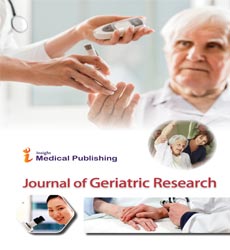Understanding the Dementia and Alzheimer's Disease
Hoda Zare*
Department of Medical Physics, Mashhad University of Medical Sciences, Mashhad, Iran
- *Corresponding Author:
- Hoda Zare Department of Medical Physics, Mashhad University of Medical Sciences, Mashhad, Iran, Email: zareh@mums.ac.ir
Received : December 01, 2021; Accepted : December 15, 2021; Published : December 22, 2021
Alzheimer's disease is a novel neurologic condition in which the mind shrinks (atrophy) and brain cells die. Alzheimer's disease is the most common cause of dementia, which is defined as a progressive loss of cognitive, behavioural, and social abilities that impairs a person's ability to function independently. Alzheimer's disease affects around 5.8 million people in the United States who are 65 years or older. Eighty percent of them are seventyfive years old or older. Early signs and symptoms of the illness include forgetting recent events or discussions. As the disease develops, a person with Alzheimer's disease will experience more recollection impairment and lose the ability to complete tasks.
The entorhinal cortex and the hippocampus, which are involved in memory, are the first areas of the brain to be damaged. It then affects parts of the cerebral cortex, including those responsible for language, logic, and social interaction. Many different parts of the brain are eventually injured. Alzheimer's disease is not a normal aspect of growing older. The most well-known risk factor is advancing age, and the majority of people with Alzheimer's disease are sixty-five years old or older. If someone is under the age of sixty five, Alzheimer's disease is referred to as youngeronset Alzheimer's. Alzheimer's disease with a younger beginning is also known as early-onset Alzheimer's disease. People with younger-onset Alzheimer's disease may be in the early, middle, or late stages of the disease.
Alzheimer's disease isn't a normal aspect of growing older. Memory problems are one of the first warning signs and symptoms of Alzheimer's disease and related dementias. Our brains change as we get older, but Alzheimer's disease and related dementias aren't a natural part of the process. In fact, as much as 40% of dementia cases can be avoided or postponed. It allows you to understand what is normal and what is no longer normal in terms of mental health.
Normal mental ageing can also mean slower processing rates and more difficulty multitasking, but normal memory, skills, and information are strong and may even improve with age. It's natural to forget about recent events from time to time, such as where you put your keys or the call of the man or woman you just met. Dementia is a syndrome in which there is a deterioration of the previous psychological factor that is likely to be expected in the normal effects of biological aging. Although dementia mainly affects older people, it is not always the inevitable consequence of aging. Currently more than 55 million people live with dementia worldwide, and there are about 10 million new cases each year. The effects of dementia from many diseases and accidents often or secondly affect the brain. Alzheimer's disease is a highly rare form of dementia and can affect up to 60-70% of cases. Dementia is currently the 7th leading cause of death among all diseases and is one of the leading causes of malnutrition and dependence on adults around the world. Dementia has physical, psychological, social and financial impacts, now no longer contributing to people living with dementia, however to his or her caregivers, families and the community at large.
Open Access Journals
- Aquaculture & Veterinary Science
- Chemistry & Chemical Sciences
- Clinical Sciences
- Engineering
- General Science
- Genetics & Molecular Biology
- Health Care & Nursing
- Immunology & Microbiology
- Materials Science
- Mathematics & Physics
- Medical Sciences
- Neurology & Psychiatry
- Oncology & Cancer Science
- Pharmaceutical Sciences
